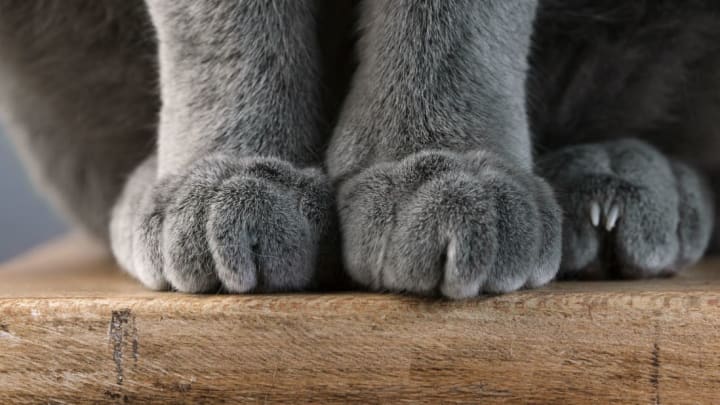Despite the inherent danger of cohabiting with an animal with sharp claws and an unpredictable temperament, most cat owners recognize that those tiny little knives on their paws are a biological right. The practice of “declawing” a cat is inhumane—the painful procedure can result in persistent discomfort—and recent years have seen an increasing amount of support for prohibiting it from being performed. New York just passed a bill outlawing declawing, and now Massachusetts is considering doing the same.
According to South Coast Today, a hearing concerning the bill was conducted before the state’s Committee on Consumer Protection and Professional Licensure on July 22, and a decision is forthcoming. If it advances, Massachusetts would become the second state to pass sweeping measures to penalize anyone performing the procedure. In New York, the fine is up to $1000. Individual cities like Los Angeles, San Francisco, and Denver have also passed measures prohibiting it.
Declawing a cat is not a matter of just removing nails. It involves amputating a portion of the bone up to the first knuckle of each toe. Having their paws permanently altered can cause a cat to have trouble walking and to experience permanent discomfort every time they touch the ground. They can also bite more or have trouble using litter boxes because it becomes more difficult to dig.
The move to ban declawing is not universal. In New York, a leading veterinary association opposed the bill, insisting that declawing should be allowed for cats with unresolved and destructive scratching habits. That law only makes exceptions for medically necessary procedures.
If scratching is a problem for cat owners, the Humane Society recommends keeping nails trimmed, setting up scratching posts, and putting smooth anti-scratch tape on furniture. Some veterinarians may also be able to recommend a soft nail cap that can be glued on.
[h/t CBS Boston]
